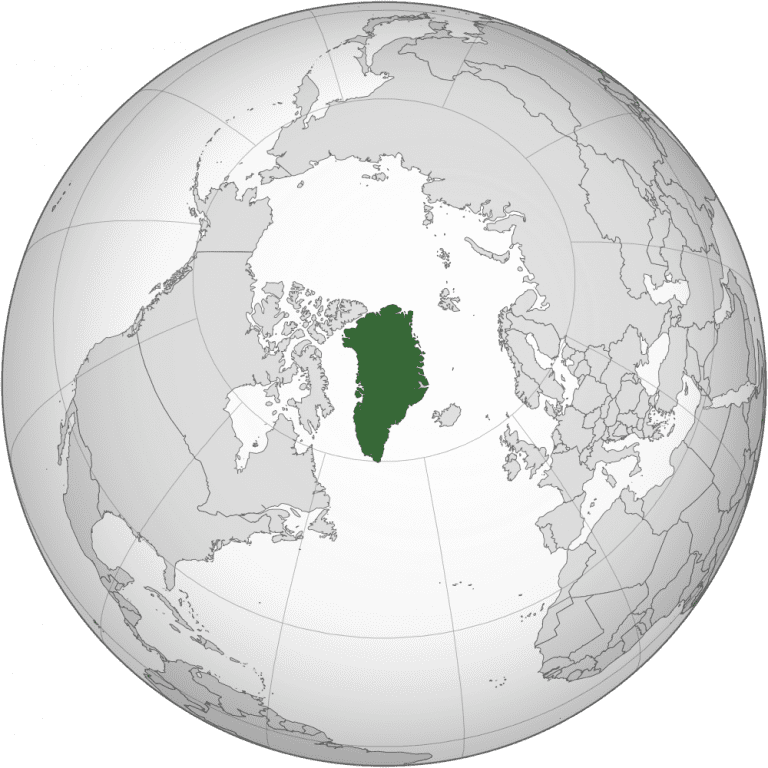President Trump has reportedly asked his aides to look into what it would take to buy Greenland. Though some White House staffers have said that Trump was not really being serious, the president’s top economic advisor Larry Ludlow said that the administration is indeed interested in purchasing the world’s largest island.
The news of the president’s interest in this kind of real estate deal has prompted incredulity and indignation, with Trump being accused of megalomania and colonialism. Greenlanders and Denmark, which owns Greenland, says that the territory is not for sale. Nevertheless, Ludlow suggests that he is ready to start negotiations.
President Jefferson bought the American West in the Louisiana Purchase. President Andrew Johnson bought Alaska. Why shouldn’t President Trump buy Greenland? There are, of course, some major difficulties.
But it would certainly be extremely cool–both metaphorically and in owning such a vast tract of the Arctic–for the United States to own Greenland. The land mass, which looks bigger than the United States in maps that use the Mercator Projection, is indeed huge, comprising 836,330 square miles. That’s about 100,000 square miles more than England, Germany, France, Italy, and Spain combined. Greenland is nearly 200,000 square miles bigger than Alaska. Buying Greenland would increase the area of the United States by over a fifth.
And yet the population of Greenland is only 56,000! That’s about the size of Moore, Oklahoma.
Greenland has untold mineral wealth. That it is mostly under ice and that there are few roads or other infrastructure necessary to extract that wealth would be a challenge to developers, but the potential value of the land is beyond conception. Greenland would be an especially good investment if global warming comes to fruition. Already, climate change had been melting ice cover and is turning parts of Greenland green again, as it seems to have been in the warming period when Eric the Red first settled the land.
Greenland also is strategically located. During World War II, it hosted important United States airfields and naval bases. In fact, President Truman tried to buy Greenland, making an offer of $100 million, which Denmark declined.
That would be the first major obstacle: Denmark has no incentive to sell. In those earlier U.S. purchases, Napoleon and the Czar needed the money. Denmark does not. And that nation (16,577 square miles) is unlikely to diminish its global footprint by selling its biggest asset.
What about working through the Greenlanders? Would it be possible to persuade that small town population that they should be Americans? Those 56,000 citizens have their own territorial government, though it’s under the sovereignty of the Danish monarchy and subject to the parliamentary government of Denmark. But what if those citizens were to make a declaration of independence and pass a referendum to join the U.S.A.? Might the 56,000 citizens yearn to throw off the chains of the hereditary monarchy and European colonialism so that they could be free?
Well, Queen Margrethe II of Denmark is among the most beneficent constitutional monarchs, and Denmark is one of the freest, most prosperous, and happiest countries on earth. Not only that, their welfare state takes care of them from cradle to grave. If Greenlanders were to become Americans, they would have to give up their nationally-provided health care, among other benefits. But we could promise them that they would pay much, much lower taxes. Maybe that would be enough. But, again, Greenlanders are saying that they are not interested, though the statement from this highly industrious people did take the occasion to invite American investment.
Which raises another possibility: Maybe the U.S. could do what China is doing in a number of countries and simply buy up businesses, industries, and other real estate on the open market as it comes up for sale. But in Greenland all land and most of its industries are owned by the government, so that probably wouldn’t work as a way to buy up the country.
And then there is the cost. How much would Greenland be worth? The U.S. bought the Louisiana Purchase (828,000 square miles) for $15 million. Alaska (586,412 square miles) cost $7.2 million. Those were among the best bargains in the history of real estate. Greenland is even bigger. And the Danes, though socialist in some ways, are also shrewd and savvy when it comes to business. What would Greenland be worth at today’s prices?
Its gross domestic product in 2016 was $2.7 billion, so it is already a money-maker. One estimate estimated the price it would take to buy it at $1.7 trillion.
But, hey, we are already running a deficit of $22 trillion! Buying Greenland would add just 7% to our national credit card.
Democrats, of course, are mocking Trump unmercifully for wanting to buy Greenland. But if Trump wants Danish real estate, Bernie Sanders wants the Danish welfare state. That would be far more expensive than Greenland. Estimates are that Medicare for All would cost $3 trillion per year. Greenland might cost $1.7 trillion, but that would be a one-time expense. Medicare for All would cost just under twice that every year in perpetuity.
The pricetag for all of the Democrats’ proposals–including College for All, guaranteed jobs, and other benefits–comes, according to the liberals’ own estimates, to $42.5 trillion for the first decade, or $4.25 trillion per year. For that we could buy lots of Greenlands!
Map by Connormah – Own work, CC BY-SA 3.0, https://commons.wikimedia.org/w/index.php?curid=6921540












